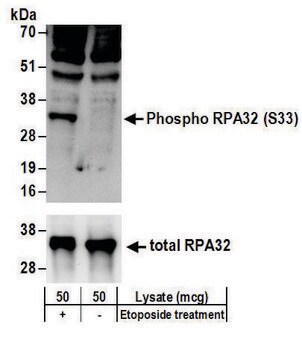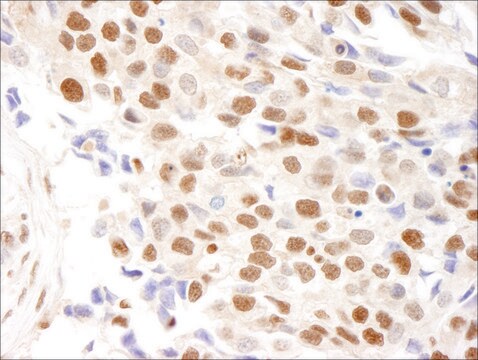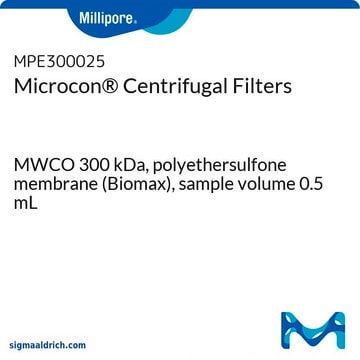PLA0071
Rabbit anti-Phospho RPA32 (S4/S8) Antibody, Affinity Purified
Powered by Bethyl Laboratories, Inc.
Synonym(s):
32kDa, REPA2, RF-A protein 2, RP-A p32, RP-A p34, RPA32, replication factor A protein 2, replication protein A 34 kDa subunit, replication protein A2, replication protein A2 (32kD)
About This Item
IHC
IP
WB
immunohistochemistry: 1:500-1:2,000
immunoprecipitation (IP): 2-10 μg/mg
western blot: 1:2,000-1:10,000
Recommended Products
biological source
rabbit
Quality Level
antibody form
affinity purified immunoglobulin
antibody product type
primary antibodies
grade
Powered by Bethyl Laboratories, Inc.
species reactivity
human, mouse
technique(s)
immunocytochemistry: 1:500-1:5,000
immunohistochemistry: 1:500-1:2,000
immunoprecipitation (IP): 2-10 μg/mg
western blot: 1:2,000-1:10,000
accession no.
NP_002937.1
shipped in
wet ice
storage temp.
2-8°C
target post-translational modification
phosphorylation (pSer4/pSer8)
Gene Information
human ... RPA2(6118)
General description
Immunogen
Biochem/physiol Actions
Physical form
Other Notes
Disclaimer
Not finding the right product?
Try our Product Selector Tool.
Storage Class Code
12 - Non Combustible Liquids
WGK
nwg
Flash Point(F)
Not applicable
Flash Point(C)
Not applicable
Choose from one of the most recent versions:
Certificates of Analysis (COA)
Don't see the Right Version?
If you require a particular version, you can look up a specific certificate by the Lot or Batch number.
Already Own This Product?
Find documentation for the products that you have recently purchased in the Document Library.
Our team of scientists has experience in all areas of research including Life Science, Material Science, Chemical Synthesis, Chromatography, Analytical and many others.
Contact Technical Service








